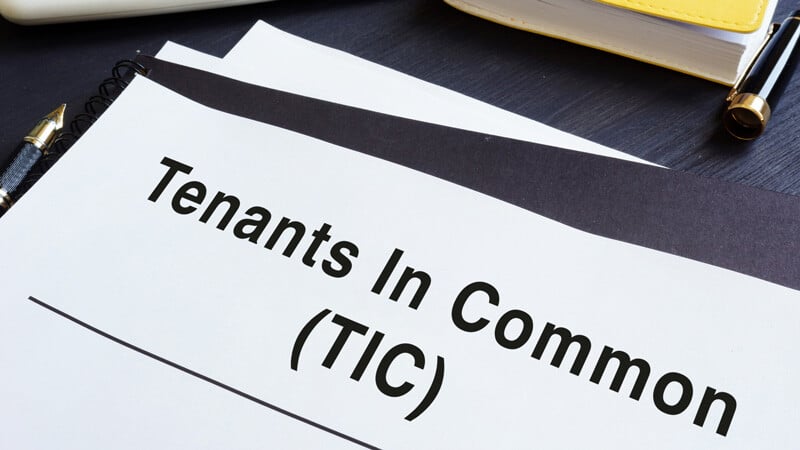Are Realized Gains in an IRA Taxable?

Gains are profits made from an investment. There are two types of gains — unrealized and realized. A realized gain is created when an investment is sold for a profit. Most realized gains are taxable. Depending on whether the gain is short-term or long-term, the tax rate will differ. How does that compare when those gains are created in a retirement account such as an IRA? That’s what we’ll look into now.
Tenancy in Common (TIC): What It Is & How It Works

Many types of investment vehicles exist today, each one offering structures and benefits that make them of interest to investors. For those who want to buy a property with a friend or relative, they can enter a tenancy in common (TIC) arrangement, which allows for the shared ownership of a real estate asset.
How Do I Report the Sale of Mineral Rights on My Tax Return?

While the royalties you could earn from mineral rights are taxed as ordinary income, the IRS considers the amount gained from selling those rights a capital gain. As with the sale of real estate or other capital assets, you must report the sale of mineral rights on Form 4797. The calculation and payment of the taxes on that gain will depend on several variables.
What Types of Properties Do Not Qualify for a 1031 Exchange?

A 1031 exchange is great for tax deferment, but not all properties qualify for this special tax treatment. In addition to the many rules to be aware of when considering a 1031 exchange, knowing if a property is even eligible is likely the first place to look.
How to Record Realized Gains on Investments

Brokers will send you a statement every month of trading activity. But for those who want to keep track of investment gains in real-time, it’s necessary to record those gains. Investors record real estate transactions as they happen since there’s no brokerage involved. We’ll look at how to record realized gains and why keeping track of unrealized gains helps complete the gains picture.
How Does the 1031 Exchange Work in Conjunction with Depreciation on Investment Properties?

Selling an investment property for a gain can result in large tax bills. Some of that bill may include depreciation payments. This is called depreciation recapture. The recaptured depreciation is taxed at a different tax rate. Does a 1031 defer depreciation recapture taxes or does depreciation continue as if it is the same property?
How To Sell Rental Property and Defer Paying Taxes

When you are fortunate and able to sell your rental property for a profit from the initial investment you made in it — it’s also a way for you to let go of landlord responsibilities while accessing liquidity.
Tenant in Common and Divorce: What You Need to Know

Divorce can have profound impacts on many aspects of your life, from living arrangements to financial and legal issues that need to be sorted out.
UPREIT 721 Exchange: What They Are & How They Work

Capital gains taxes can make a considerable dent in your overall profits from a real estate sale, especially if you’re in the top tax brackets. It’s not surprising that many investors look for ways to defer tax liabilities. Several types of investment vehicles offer such benefits, and among these is the 721 Exchange, also called UPREIT.



